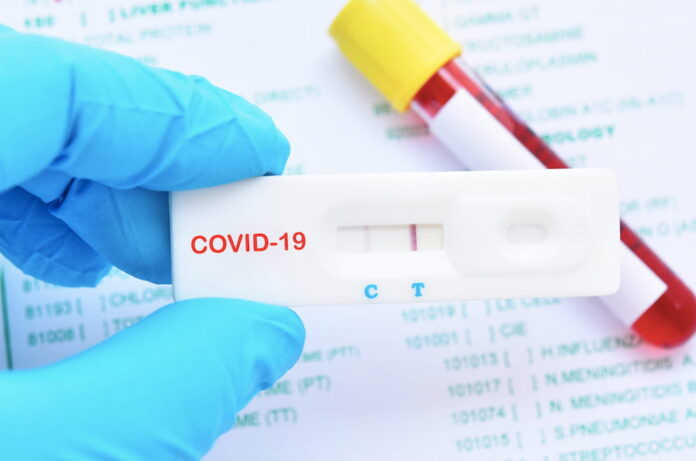The current global pandemic caused by the novel coronavirus has put a spotlight on the COVID-19 antibody testing process. It is important for people to understand how it works and what it can help them determine. This article will provide an overview of COVID-19 antibody testing in the United States, including how it works, its accuracy, and its implications for individuals.
The article will also discuss why it is important for people to know about antibody testing and why it may be beneficial for some individuals. Additionally, information regarding different types of tests available in the US, as well as potential challenges individuals may experience when trying to access testing, will be provided. Finally, the article will include resources that can help individuals find out more about COVID-19 antibody testing in their area or state.
COVID-19 antibody tests are an important part of understanding the virus and taking action to protect ourselves and others from its spread. With that in mind, this article seeks to provide an informative overview of what individuals should know about these tests in order to make informed decisions regarding their health and safety during this difficult time.
Overview Of Covid Antibody Testing
Covid antibody testing is an important tool for determining if a person has been exposed to the virus. It is different from other tests, such as PCR or antigen testing, which detect the presence of active infection.
Instead, Covid antibody tests look for immunity by detecting antibodies in the body that were produced in response to an earlier infection.
The availability of Covid antibody testing has increased significantly since its introduction and it can now be done at certain healthcare provider offices, urgent care centers, and pharmacies in the USA.
Covid antibody tests are usually performed using a blood sample that is sent to a lab and analyzed for specific antibodies associated with SARS-CoV-2.
Depending on the type of test used, results may take up to several days to be available. While positive results indicate past exposure to SARS-CoV-2, it does not necessarily mean that the person is currently infected or immune from reinfection.
Thus, individuals should continue following safety protocols such as wearing masks and social distancing even after receiving a positive result from their Covid antibody test.
What Is An Antibody Test?
An antibody test is a type of medical diagnostic test that detects the presence of antibodies in a person’s body. Antibodies are proteins produced by the body to fight off foreign substances, such as viruses and bacteria.
In the case of COVID-19, an antibody test can detect if someone has previously been infected with the virus. This type of testing is different from other types of COVID-19 testing, such as molecular PCR tests which detect current infections. Here are some key points about antibody testing:
• It can help determine if a person has been exposed to or infected with SARS-CoV-2 in the past.
• Antibody tests do not diagnose active infections – only previous exposure to the virus.
• Results are usually available within 15 minutes to several hours depending on the type of test being used.
• False negatives may occur, so it is important to repeat testing when necessary.
Antibody tests provide valuable information that can help inform medical decisions and direct public health strategies for managing COVID-19 outbreaks. It is important for people who get tested to understand how these tests work and what their results mean for them personally and for their communities at large.
Benefits Of Covid Antibody Testing
Covid antibody testing offers a number of benefits to those who are interested in understanding their potential exposure to the virus.
It can provide individuals with greater insight into their health and inform decisions about protection for themselves and others. Additionally, it can be used to inform healthcare providers about potential treatments.
This type of test is important for controlling the spread of the virus by providing information about who may have been exposed or infected previously.
It also helps to identify individuals who may benefit from certain treatments or medications. Furthermore, it can help to identify people who are at higher risk for severe illness due to prior infection, allowing appropriate preventive measures to be taken for those individuals.
Covid antibody testing provides an important tool in managing the pandemic and helping individuals protect their health more effectively.
How To Access Covid Antibody Testing In The USA
Accessing a COVID-19 antibody test in the USA is relatively straightforward. Tests are available both through private medical providers and public health departments, though availability can vary by location.
Private providers typically require a doctor’s order and may not be covered by insurance, while public testing sites often do not require a doctor’s order and may be free or low-cost.
When seeking an antibody test, it is important to understand the accuracy of the particular test being used and the implications of receiving a positive or negative result.
Knowing how to interpret results correctly can help inform decisions about any necessary follow-up care or procedures. It is also important to be aware of any potential risks associated with taking a COVID-19 antibody test and how these risks might vary depending on the type of test being used.
Read Also
- Exploring the Benefits of Infusion Therapy in OKC: The Ultimate GuideUnderstanding Infusion Therapy: A Deep Dive into Its Purpose and Process What exactly is Infusion Therapy? Infusion therapy is an advanced medical treatment that delivers medication and nutrients directly into the bloodstream through a vein, typically via an IV (intravenous) line. This method is particularly beneficial for patients who require a concentrated dose of medication,… Read more: Exploring the Benefits of Infusion Therapy in OKC: The Ultimate Guide
- Ketamine-Assisted Therapies: Impacts on Employee WellbeingWorkplace stress is common today. Many employees feel tired, anxious, or burned out. Regular therapy can help, but some people need more support. Ketamine-assisted therapy is showing good results for mental health. A ketamine-assisted therapist guides each session safely. This therapy can improve mood, focus, and energy. Learning more about it can help teams stay… Read more: Ketamine-Assisted Therapies: Impacts on Employee Wellbeing
- The Future of Men’s Health: Why Telehealth Is Here to StayTelehealth isn’t just a pandemic trend that faded into the background. For Australian men, it has become one of the most practical, time-saving, and stress-free ways to manage everyday health — and it’s shaping the future of how we access care. Platforms like DOCTO, an Australian online doctor and specialist telehealth service, are leading the… Read more: The Future of Men’s Health: Why Telehealth Is Here to Stay
- How to Build a Simple, Clean Skincare Routine ?You don’t need a complicated skincare routine. It doesn’t have to be something that requires twenty different products and confusing steps. Your routine works well with just a few high-quality clean ingredients. The beauty industry keeps pushing more products, but your skin actually needs less. You only need a simple approach to get better results… Read more: How to Build a Simple, Clean Skincare Routine ?
- How Preventive Dental Care Supports Overall HealthHave you ever wondered how a simple dental checkup could impact your entire body? Oral health is more than just a bright smile. Studies show that poor dental habits can contribute to serious health problems. Gum disease and tooth decay are linked to heart disease, diabetes, and infections. Yet, many people overlook preventive dental care.… Read more: How Preventive Dental Care Supports Overall Health
- Seeing Clearly in a High-Tech World: A Deep Dive into Advanced Vision Care ServicesProtecting your eyesight isn’t optional—it’s essential. Modern eye care has evolved far beyond basic exams, offering advanced diagnostics, personalized treatments, and surgical innovations that keep vision sharp for life. A leading example is Intermountain Eye Center, home to specialists like Dr Fishburn Boise, where patients receive comprehensive, high-level vision care designed to preserve long-term eye… Read more: Seeing Clearly in a High-Tech World: A Deep Dive into Advanced Vision Care Services







